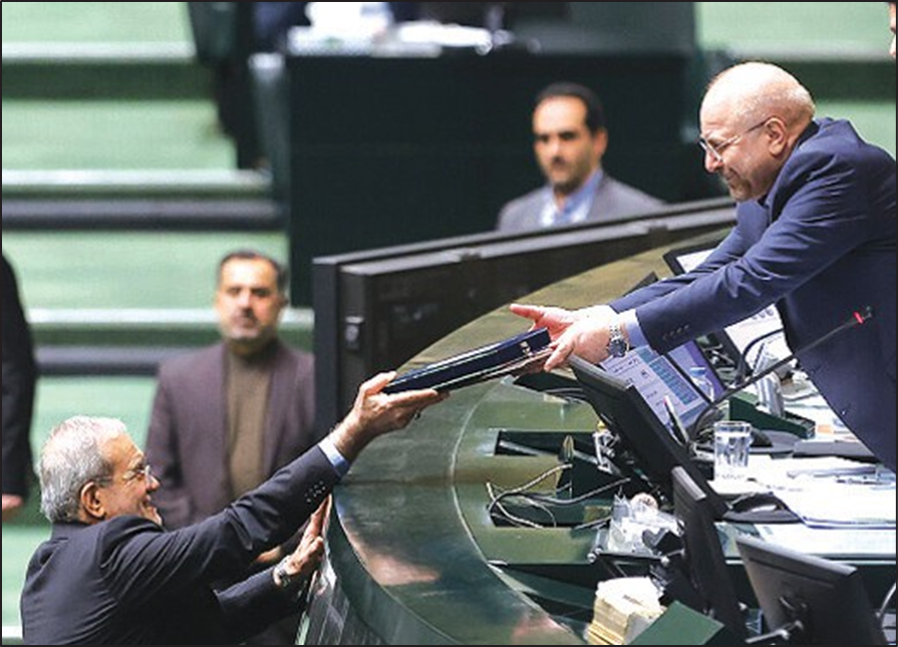The film, which is about the marital struggles of an upper-middle class Tehran couple, started making its mark by winning the prestigious Golden Bear award in Germany last year.
The movie explores the complicated notions of right and wrong, morality, class divisions and, in some ways, the permanent loss of childhood’s innocence through the lives of Simin, a doctor, and Nader, a bank employee, and their 11-year-old daughter, Termeh.
Simin wants to emigrate in search of a better future for Termeh, while Nader wants the family to remain in Iran so they can take care of his elderly father who is suffering from Alzheimer’s and hardly even re- members that Nader is his son.
The couple separate, with Simin staying at her parent’s home and Termeh remaining with Nader, whose ailing father is now left without a caretaker. Enter Razieh, the religiously devout wife of a working-class Tehran man, hired to look after the ailing father.
Razieh’s husband is unemployed and unaware of his wife’s new job, while Nader as part of the film’s many unanswered questions may or may not know that his new employee is pregnant.
The movie explores the complicated reality of human existence and the elusive nature of truth. A. O. Scott of The New York Times said: “It is a rigorously honest movie about the difficulties of being honest, a film that tries to be truthful about the slipperiness of truth.” Consequently, the film is not made to answer questions, as is the typical American film; rather, the movie raises questions while it portrays the lives of the characters with evenhandedness.
Moviegoers find themselves experiencing each unfolding event in tandem with the characters, mired together in the fog of the present. Moviegoers are left with the impression that there might be more to the separation of Simin and Nader than just the disagreement over emigration, and that Razieh’s miscarriage which leads to a court battle with Nader as the defendant might have more to it than what the sides know.
“Farhadi keeps the story open-ended, so that we, as much as the characters, are unclear about what actually happened,” writes Peter Rainer of the Chris-games with us.
He wants us to tian Science Monitor. “Farhadi isn’t playing recognize that, in the end, no one in this story is culpable; everyone is caught up in a situation spun dangerously out of control.”
But perhaps Termeh, in the helplessness of her childhood, is almost certainly not culpable. She works hard in school and tries to please her parents, but is unable to understand the events of her life, which are beyond her control.
Ultimately Termeh learns that her parents, whom she worships, can indeed tell lies and break their own promises during the twists and turns of life.
The film’s ambiguity both about the facts and about the outcomes might leave some movie-goers frustrated especially in the United States, which does not share Iranian society’s passion for ambiguity.
Stephen Whitty of the Newark, New Jersey, Star- Ledger certainly sensed this among the moviergoers at the film’s premiere at the New York Film Festival. But that was not important to him. “What does it matter how various legal issues are decided in court?” he asked.
“That will go on and on for years, long after this movie ends. What really matters is how this little girl now views the world. And that, sadly, has been resolved long before the final fade-out.” The film is Iran’s entry for the Oscars this year.
And it has bedazzled many a critic. The Christian Science Monitor and The Wall Street Journal, for example, have both called it the best film of the year not merely the best foreign language entry at the Oscars.
The review aggregator website Rotten Tomatoes gives it a freshness rating of 100 percent, putting it above any movie in any language. If it makes the cut for the final five foreign films to compete in the Oscars, it will be only the second Iranian movie to win a nomination.
The first was Majid Maijdi’s “Children of Heaven” in 1999. Many Iranian expatriates have also been honored with Oscar nominations. Nine expats six from the US, turn to Iran.” two from Britain and one from France have won a total of 12 nominations over the years but no one has won an Oscar yet.
In his casting, Farhadi is going counter to the prevailing trend among prominent directors in the Iranian cinema where casting amateurs is the oeuvre.
His cast is composed of professionals. For example, Peyman Moa-adi plays the husband, while Leila Hatami plays the wife. The one newcomer is Farhadi’s daughter, Sarina, who plays Termeh.
After the release of the film, rumors began to spread that director Farhadi might himself be planning to emigrate from Iran. But Farhadi, who was in France last week, was quick to deny the rumors.
“The first time I heard the rumor was when I was behind a red light in Tehran’s Haft-e-Teer Square,” Farhadi told the Iranian Students News Agency (ISNA) news agency via telephone. “Neither have I emigrated nor do I plan to emigrate,” he was quoted as saying.
But he did reveal that he is working on the script of a new movie that he plans to set in Paris. “I have traveled to Paris to be familiar with the atmosphere of the city in order to begin writing the screenplay with my writer colleague there,” he added. “After the film is complete, I, along with my family, will return to Iran.”



















